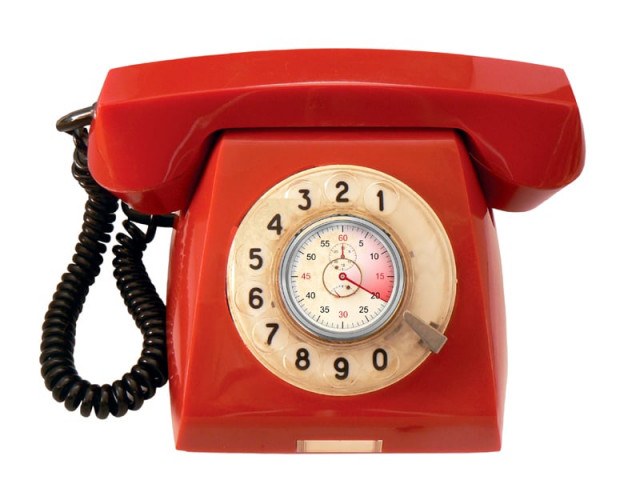Tech Society: Gone in twenty seconds
There is an interesting commonality in all of us — the length of our phone calls.

Tech Society: Gone in twenty seconds
Notwithstanding our myriad ethnic, class and regional differences, there is one peculiar tendency that unites us as a nation: our average call time. In the world of telecommunications, we, as a nation, are defined by 20 seconds precisely. Whether it’s a suave businessman sitting in his furnished office or a vegetable vendor by the dusty roadside, the average time it takes for a typical Pakistan to express himself/herself in a phone call is merely twenty seconds.
The executive proclaims his impending arrival at a meeting and the traveller loudly announces his arrival at the airport, within the average duration of a twenty-second phone call. Suprisingly, the short span of twenty seconds encapsulates festive flurries celebrating a win by the Pakistan cricket team from Karachi to Landi Kotal, the coordination between the paan-chewing office boy and the chai walla to ensure smooth delivery of tea on all office floors. And twenty seconds is all it takes for Pakistanis, notwithstanding their socioeconomic background, to inform their loved ones, that they will soon reach home safely.
As our market for telecommunications has expanded enormously, telecom companies have been paying more attention to our typical usage patterns i.e. what time of day we place a call, our average monthly spending on phone credit and indeed, how long we talk. Consequently, this analysis has yielded that a significant pattern — a typical call lasts on average for twenty seconds. We, as a nation, comprise one of the fastest growing telecommunication industry, in terms of numbers of subscribers. And if you are one of the 105 million-plus people in Pakistan who own a mobile connection, you also partake in the twenty-second phone call trend.
Some operators like Zong decided to capitalize on this by launching specific packages, like the Z20. “This was the first time that a telecom service provider offered its package on a 20-second basis, explains Amir Pasha, manager public relations Zong. “The concept behind Z20 was to promote the value of time and the importance of choti but zaroori baat.”
Some aspects of this trend were memorably captured by in the Z20 package ads and reiterated during key sporting events. And if you look at other telecom ads carefully you will notice that there are many other such “trends” that fit our local profile.
The twenty-second phenomenon, as we see know it today, was not always the norm when cellular services were first introduced in 1994 by Mobilink. Users who carried the oversized, cumbersome phones of the bygone era were reluctant to use them freely for fear of incurring huge expenses. But now things have drastically changed.
But because of proliferation of telecom providers during the new millennium in Pakistan, Mobilink is no longer the only predominant telecom firm. Due to the surfeit of attractive telecom packages available in the market by Ufone, Telenor, Warid and Zong, it has become cheaper to place calls. And thus our mobile pulse — the duration of our phone calls — has quickened. We call more regularly throughout the day and often we connect with people to convey succinct messages — like a chauffeur calls his boss to let him he has arrived to pick him up. Hence the interesting phenomenon of the twenty-second call.
Next time you hit the dial button, know that there’s a probability that your call might just last less than half a minute!
About the Author: Yasmin Malik is a Telecoms Analyst and a Visiting Faculty at the IBA
Published in The Express Tribune, October 15th, 2011.



















COMMENTS
Comments are moderated and generally will be posted if they are on-topic and not abusive.
For more information, please see our Comments FAQ